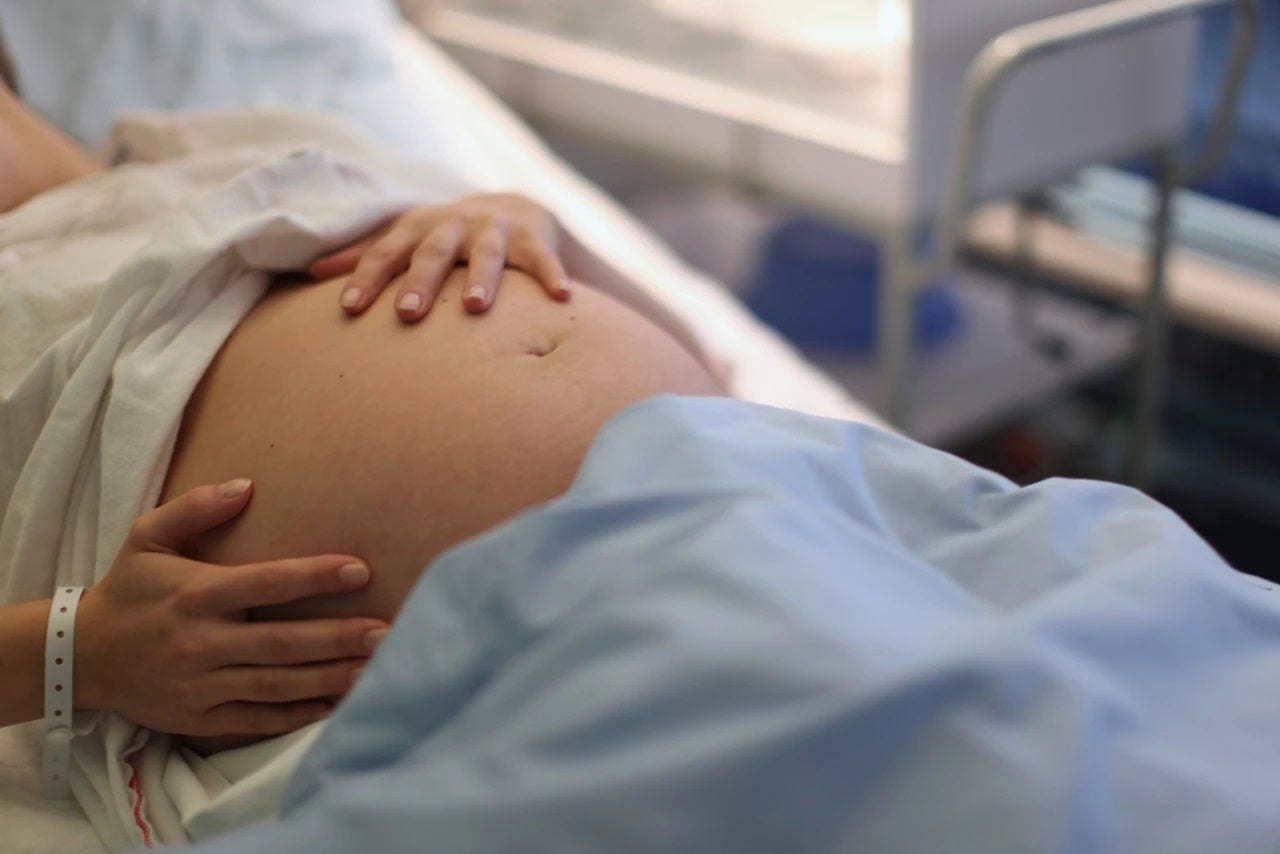Named after Doctor John Braxton Hicks, who did extensive studies on them, Braxton Hicks contractions are the tightening and relaxing of your uterus during pregnancy. Braxton Hicks contractions aren't painful, but they maybe uncomfortable if you aren’t expecting them.
What's in this article
- What do Braxton Hicks feel like?
- Braxton Hicks symptoms
- Are Braxton Hicks painful?
- When do Braxton Hicks start?
- What’s the difference between Braxton Hicks and contractions?
- How long do Braxton Hicks last?
- How to relieve Braxton Hicks
- When should I call the midwife about Braxton Hicks?
- A mum’s view of Braxton Hicks
What do Braxton Hicks feel like?
Braxton Hicks symptoms
Braxton Hicks symptoms include mild, early contractions, when the womb contracts and tightens, and your bump may become a little harder to touch than normal. Some mums believe that Braxton Hicks is just your body’s way of practicing before the big day, but it’s important to remember that Braxton Hicks is not the onset of labour. Braxton Hicks are not harmful to you or your little one, so if you begin to feel these early contractions, the best thing to do is relax. Chances are they will pass quickly.
Are Braxton Hicks painful?
For many women Braxton Hicks are uncomfortable rather than painful. As you near the end of your pregnancy, they might begin to feel a little more intense, especially if your baby is in the head-down position and pressing on your cervix. Some women don’t feel Braxton Hicks at all, but might notice their bump becoming very tight before it softens again. Each Braxton Hicks contraction should pass quite quickly, but they are very irregular. If you are in any doubt, call your midwife or maternity triage - don’t worry, they are there to help and would rather you and your little one were safe and happy in the knowledge that nothing is wrong.
When do Braxton Hicks start?
Not all women experience Braxton Hicks. For those that do, they may start to feel them around the halfway point of pregnancy, although they can be felt as early as 16 weeks. In fact, your body has been performing Braxton Hicks from as early as seven weeks into your pregnancy, but you will not have felt them this early. Most women who experience them feel them from around week 20, and as your due date nears, they will become a little more common.
What’s the difference between Braxton Hicks and contractions?
An excellent question, and one that many midwives and doctors have had to explain to expectant mums. Whilst it’s easy to mistake Braxton Hicks contractions for going into labour, particularly if it is your first baby, or you’re not used to the symptoms, they are very different from the real deal. Towards the end of your pregnancy Braxton Hicks are often referred to as ‘false labour’. The following points outline some of the differences between Braxton Hicks and labour contractions:
- Braxton Hicks are not painful, while labour contractions tend to be.
- Braxton Hicks occur randomly rather than regularly. Labour contractions last longer and become more and more regular the further along you are into labour.
- Labour contractions often come with other indicators, like water breaking or a show. For some women this can happen late in labour, but for others, their water might not break at all, and their baby is born in the sac. The show can occur during pregnancy, prior to labour starting. So it is possible for a woman to have a show and Braxton Hicks without labour starting. If you’re in any doubt get in touch with a midwife.
- Braxton Hicks tend to stay at the same level of intensity, whereas labour contractions become increasingly more painful as they develop.
- Labour contractions are often accompanied by lower back pain and/or cramping.
- Labour contractions can come with the onset of diarrhea and nausea, whereas Braxton Hicks tend not to.
How long do Braxton Hicks last?
Braxton Hicks contractions can vary in length, are typically infrequent and irregular.
How to relieve Braxton Hicks
For many women it is simply a case of letting them run their course. But there are a few things you can do if Braxton Hicks are painful:
- Trying going for a pee. This can relieve some of the pressure around your uterus and can often stop Braxton Hicks.
- Drink some water. Dehydration is often a cause of Braxton Hicks.
- Try changing position. If you’ve been sitting in the same position for a while - and if you are heavily pregnant, this is more than likely - then a gentle walk can help relieve Braxton Hicks contractions.
- If you have been doing anything strenuous, then have a sit-down and a little rest.
- If all else fails, run yourself a nice warm bath. The warm water will help relax your muscles.
When should I call the midwife about Braxton Hicks?
There is nothing the midwife can do about Braxton Hicks contractions, but if you are worried or concerned as to whether you are experiencing Braxton Hicks or labour, then you should definitely call your midwife or maternity triage. If nothing else, they will be able to put your mind at ease.
A mum’s view of Braxton Hicks
"I didn't have Braxton Hicks contractions with my first baby, so experiencing them for the first time with my second one was a bit of a surprise. The main difference between Braxton Hicks and actual labour contractions is my labour pains started as a bit of a dull ache, and gradually got more and more painful. Braxton Hicks contractions have been a little sharper and come in much shorter waves than labour. Thankfully, they are also over much quicker than labour!" - Julia, soon-to-be mum of two.
More from pregnancy
Pregnancy topics
Any more questions?
Our specialist baby advisors and experienced mums are here to talk and ready to help whenever you need them.
Ask us a question (8am - 8pm Mon-Fri, 10am - 5pm Weekends)
Email us
Send us an email (8am-8pm Mon-Fri, 10am-5pm Sat)
Call Us
Call us on 1800 570 570 (8am-8pm Mon-Fri, 10-5pm Sat)
FAQs
For all the latest information












